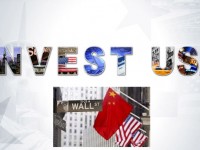Oct 08, 2015
Supporters of the Trans-Pacific Partnership say the trade deal would help counter China’s influence over the Pacific, but that argument is flawed. China’s dominance is inevitable.
Han Liqun, Researcher, China Institutes of Contemporary International Relations
Sep 30, 2015
Whether or not the struggling talks produce an agreement soon, the US and China do not need to be defensive about the TPP. Instead, they should open an obstruction-free channel for dialogue, through which both countries can use anticipatory diplomacy to enhance mutual trust.
Mark Tinker, AXA Investment Managers
Sep 25, 2015
As Xi Jinping heads to the United States he might need to check that he takes his irony meter with him, for there seems little evidence that anyone in the Western media has one they might be willing to lend him.
Dan Steinbock, Founder, Difference Group
Sep 24, 2015
Thanks to misguided stories about President Xi’s reforms, America risks losing the opportunity to participate appropriately in China’s massive economic rebalancing and reform drive.

He Weiwen, Senior Fellow, Center for China and Globalization, CCG
Sep 24, 2015
China’s stock-market correction was predictable after its wild rise, but it does not signal a sustained economic slump. However, “China shock” did influence the U.S. and European stock markets, despite the effect being psychological and temporary. During the first half of September, U.S. and European markets have been rising steadily, despite the lingering struggles for Chinese stocks. With an expected mild rebound by the end of the year and beyond, it is likely that China’s imports will gradually pick up, thus contributing more to the world commodities demand recovery.
Lawrence Lau, Ralph and Claire Landau Professor of Economics, CUHK
Sep 23, 2015
In 1997, at the height of the East Asian currency crisis, I wrote an article, “The Sky is not Falling (天塌不下来),” basically saying that the Chinese economy would be able to emerge from the crisis more or less unscathed.

Gordon Chang, Writer
Sep 22, 2015
While China’s National Bureau of Statistics’ (NBS) reporting on GDP growth grates have been called into question by international observers, there is acknowledgement that the structure of China’s economy is changing. The real test of the reliability of official reporting, therefore, will come when NBS issues its Q3 headline GDP figure.

Fu Mengzi, VP, China Institutes of Contemporary Int'l Relations
Sep 17, 2015
A close bilateral relationship is always accompanied by more differences, frictions or even conflicts, including profound structural contradictions. So long as both regard and handle their relations from a strategic and long-term perspective, there will be no difficulty that China and the US cannot overcome.
William Overholt, Senior Fellow, Fung Global Institute
Sep 17, 2015
The gravest threat to American global leadership is neither Russia nor China but continued interest group-driven Congressional abandonment of the kind of balanced strategy that won the Cold War.

Niu Li, Director of Macro-economy Studies, State Information Center
Sep 16, 2015
China’s economy has shifted to a slow gear, having a bigger impact on those resource-exporting countries which highly depend on China’s market, but having no remarkable impact on European and the US economic growth. In particular, China’s slow economy is not the “culprit” of the recent US stock market slump, which was caused by the American market’s own problems.
Back to Top

- China-US Focus builds trust and understanding between the U.S. and China through open dialogue among thought leaders.
- Our Offerings
- Topics
- Videos
- Podcasts
- Columnists
- Research Reports
- Focus Digest
- Stay Connected
-
Thanks for signing up!
- Get the latest stories from China-US Focus weekly.